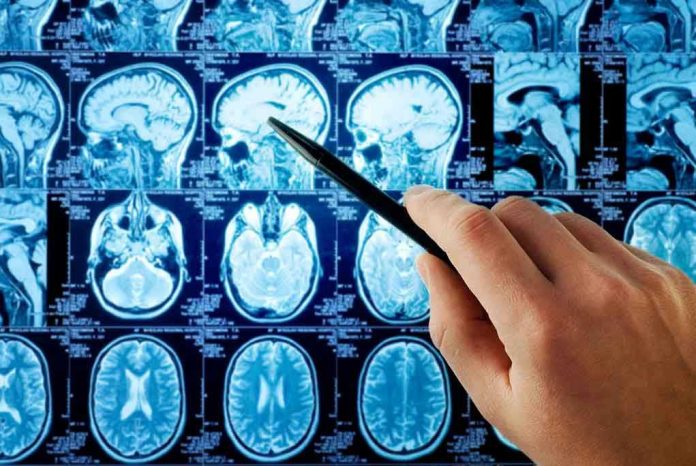
Can a night of bad sleep really make your brain age faster than a cheese left out in the sun? Neuroscientists say yes, and they’ve got the brain scans to prove it!
At a Glance
- Everyday habits can silently sabotage your brain health.
- Even minor lifestyle changes can significantly reduce dementia risk.
- Sleep, diet, and digital habits are crucial for cognitive function.
- Public awareness is growing, but actual behavior change lags behind.
The Culprits Behind Brain Decline
Researchers have spotlighted several everyday habits as the brain’s arch-nemeses. Chronic sleep deprivation tops the list, akin to letting your brain run on fumes. Forgetful mornings and foggy afternoons are the least of your worries—prolonged sleep loss can pave the way to Alzheimer’s by hampering the brain’s housekeeping duties of clearing toxic proteins. Smoking and alcohol, once glamorous vices, now wear the scarlet letter of cognitive decline. Smoking accelerates neuron breakdown, while even moderate alcohol consumption can shrink brain volume to that of a deflated balloon.
All that couch potato time is another silent assassin. Prolonged sitting is linked to a thinner medial temporal lobe, which plays a starring role in memory. Meanwhile, diets high in ultra-processed foods do more than expand the waistline—they could shrink your cognitive abilities. These findings suggest that a diet rich in fruits, vegetables, whole grains, and fish isn’t just for the heart anymore; it’s brain food at its finest.
Digital Age Dilemmas
The dawn of the digital age has introduced a new set of challenges for brain health. Excessive screen time and social media usage have been associated with reduced gray matter in areas responsible for decision-making and impulse control. It’s as if your smartphone is silently chipping away at your brain’s structural integrity. This digital addiction also fosters loneliness, a sneaky culprit that can lead to cognitive decline.
Experts argue that moderation is key, and scheduling tech-free time can help. Engaging in offline activities, such as reading or socializing face-to-face, can restore some of the lost gray matter and provide the mental stimulation necessary to create new neural connections.
The Path to Brain Resilience
Adopting brain-healthy habits doesn’t require a complete lifestyle overhaul. Small, consistent changes can yield significant benefits. Prioritizing 7-9 hours of quality sleep each night, quitting smoking, and limiting alcohol intake can form the foundation of a brain-friendly lifestyle. Incorporating regular physical activity and consuming a balanced diet rich in whole foods can further bolster brain health.
The importance of mental stimulation cannot be overstated. Learning new skills, solving puzzles, and challenging the mind can help build cognitive resilience. This proactive approach to brain health emphasizes prevention over treatment, shifting the focus from managing cognitive decline to enhancing cognitive function.
Sources:
Neuroscience News (Aalto University study)



